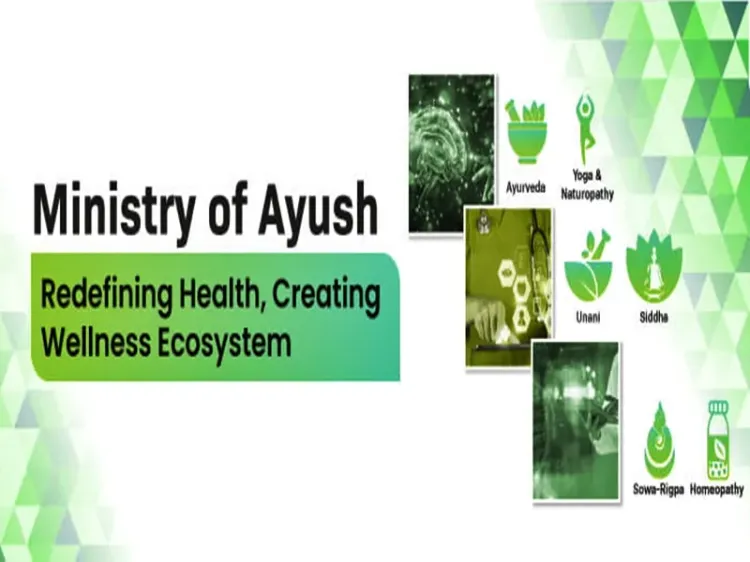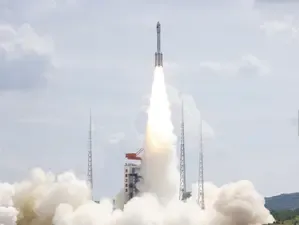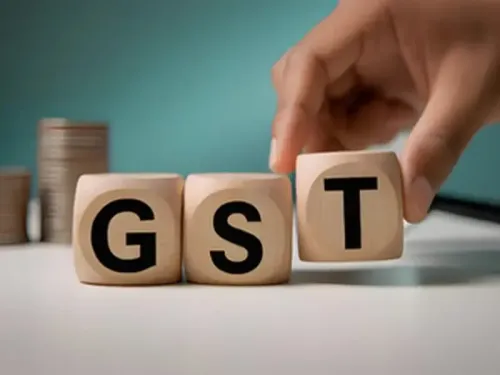Growth of AYUSH: India's Health Tourism Revolution

Synopsis
Key Takeaways
- AYUSH promotes traditional Indian medicine.
- Medical visa provisions boost health tourism.
- Over 755,780 AYUSH practitioners in India.
- Digital initiatives like e-Sanjeevani enhance services.
- Global collaborations expand AYUSH's reach.
New Delhi, Jan 28 (NationPress) The AYUSH system (Ayurveda, Yoga and Naturopathy, Unani, Siddha, and Homeopathy) has positioned India as a leading destination for medical tourism in recent years.
The Ministry of Ayush has played a pivotal role in advocating for traditional medicinal practices. Consequently, by 2024, Ayurveda, Yoga, Unani, Siddha, and Homeopathy became integral to mainstream healthcare globally.
In 2023, the government introduced medical visa provisions to ease the entry of international visitors seeking health and wellness services in the nation.
This initiative has resulted in a remarkable increase in medical tourism, with approximately 123 regular Ayush visas and 221 e-Ayush visas granted to foreign patients from July 2023 to December 2024, as reported by the Ministry.
Additionally, 17 e-Ayush attendant visas were issued during this timeframe.
The Ayush Visa is categorized into four sub-types: Ayush visa, Ayush attendant visa, e-Ayush visa, and e-Ayush attendant visa. An Ayush Visa is specifically for foreigners aiming to receive treatment via Ayush systems.
India boasts over 755,780 registered Ayush practitioners, alongside 886 undergraduate and 251 postgraduate institutions, with a total annual enrollment of 59,643 UG students and 7,450 PG students.
Furthermore, there are around 3,844 Ayush hospitals and 36,848 dispensaries established, along with over 43,000 studies featured on the Ayush Research Portal, underscoring the emphasis on evidence-based healthcare.
The Ayush sector has also embraced digital innovation through programs like Ayush Grid, e-Sanjeevani telemedicine, and AI integration. Moreover, Ayush Telemedicine has made quality healthcare accessible to remote areas.
Globally, Ayush Information Cells are operational in 39 locations across 35 countries, functioning as key centers for knowledge dissemination and global awareness.
The Ministry has partnered with over 103 nations to advance Ayush systems. It inaugurated the WHO Global Traditional Medicine Centre in Jamnagar and facilitated the recognition of traditional medicine in the WHO Disease Classification Series ICD-11 in 2024.










